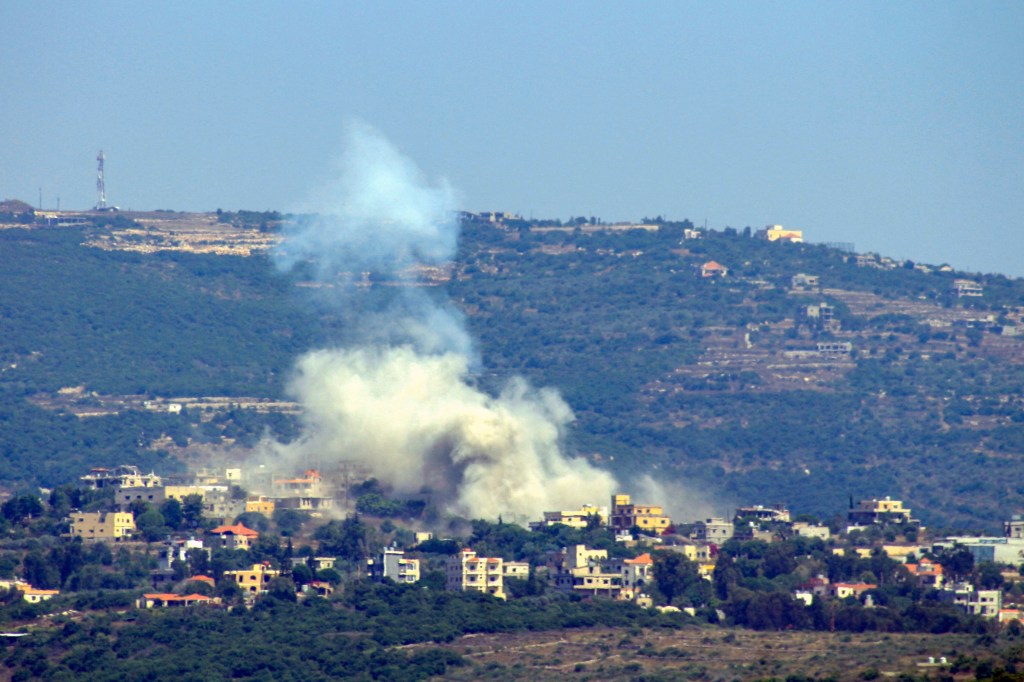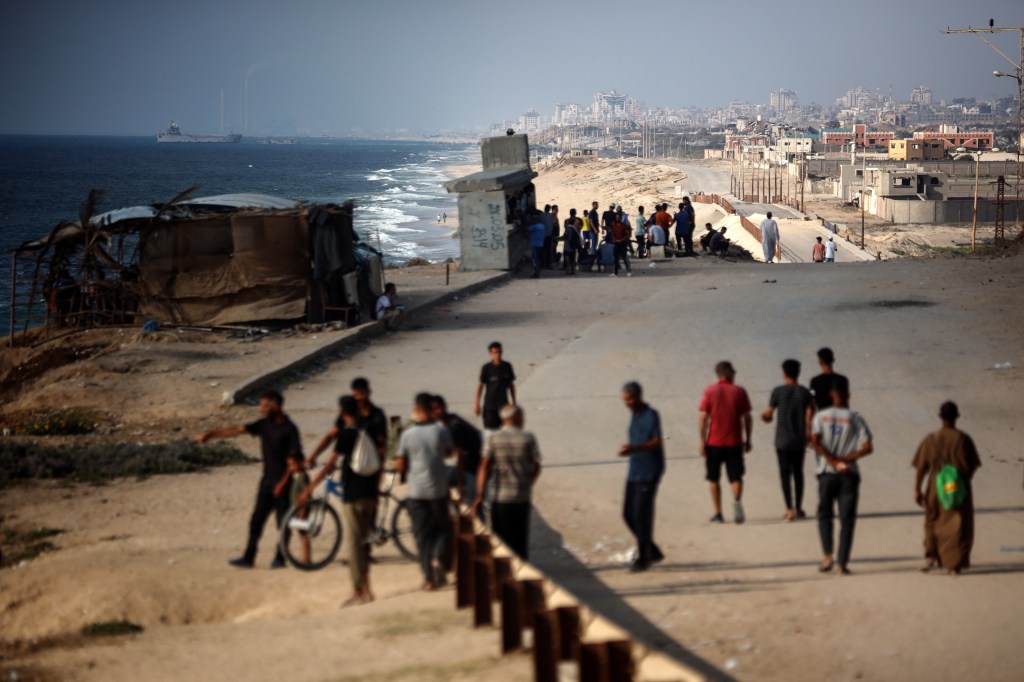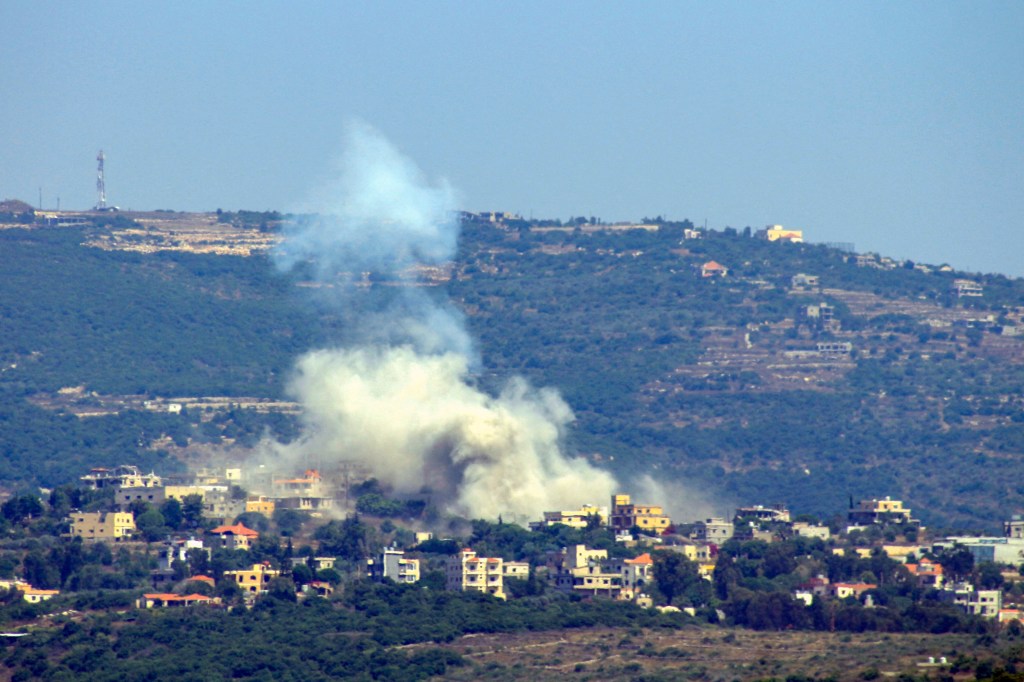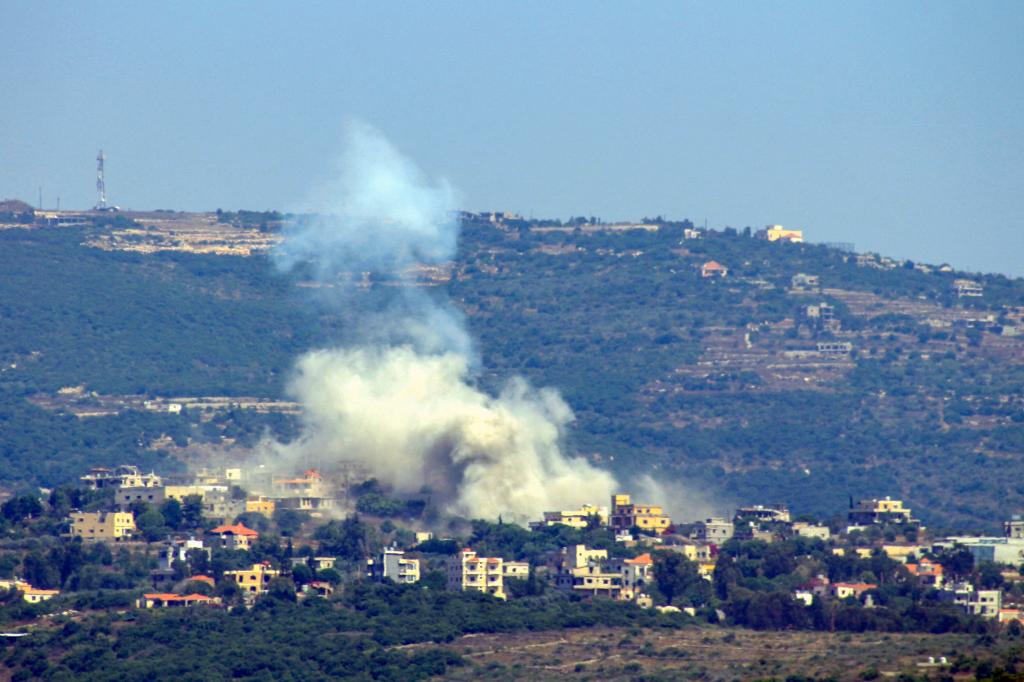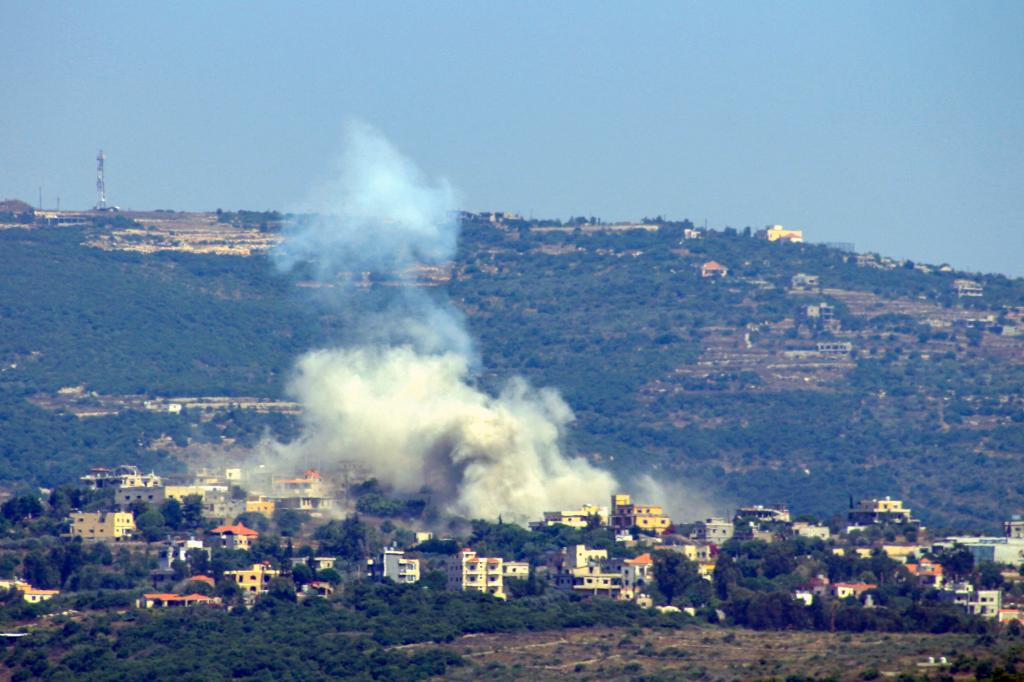Iran threatens ‘obliterating war’ if Israel launches full-scale conflict with Hezbollah
Iran is threatening an “obliterating war” if Israel launches an all-out conflict against Hezbollah in Lebanon.
The thunderous warning came after the Israel Defense Forces hit several Hezbollah targets Friday in retaliation to the Iran-backed terror group’s barrage of rockets launched on northern Israel earlier in the day.
“Should [Israel] embark on full-scale military aggression, an obliterating war will ensue,” the Iranian UN mission said in a post on X late Friday.
The statement said that Iran sees Israeli threats against Hezbollah as “psychological warfare” and “propaganda,” but said that should Israel “embark on full-scale military aggression, an obliterating war will ensue.”
The statement continued that “all options, including the full involvement of all Resistance Fronts, are on the table,” referring to its “Axis of Resistance” that includes the Tehran-backed proxies Hezbollah, Hamas, and the Houthis in Yemen.
Skirmishes have plagued Israel’s northern border with Lebanon in the nearly nine months since Hamas launched its murderous October 7 attack on the Jewish state. Tens of thousands of Israelis have evacuated the northern region for fear of a similar attack from Hezbollah, which launches near-daily missile strikes across the border in solidarity with Hamas in Gaza.
Concerns that the conflict in the north could explode into an all-out war surged in recent weeks after Israel killed a senior Hezbollah commander, prompting the terror group to retaliate with rocket barrages.
US officials are attempting to de-escalate the violence with Hezbollah in an attempt to control the fighting from spiraling into a two-front war at the same time they are working to secure an Israel-Hamas ceasefire deal, The Washington Post reported.
Hezbollah said that an end to the war in Gaza was essential to halt the fighting on the Lebanese border, although US officials suggested, without providing details, that there may be other alternatives that do not require a ceasefire agreement with Hamas.
Meanwhile, US envoys recently presented new language for a proposed hostage-truce deal after Hamas earlier this month rejected the three-phase plan outlined by the White House and approved by Israel’s now-dissolved war cabinet, Axios reported.
The US, along with Qatari and Egyptian mediators, is focused on amending a part of the ceasefire deal, known as Article 8, that concerns the negotiations set to occur during a six-week ceasefire to occur during the first phase of the agreement.
“The U.S. is working very hard to find a formula that will allow reaching a deal,” a source told Axios.
The proposal stipulates that the first phase of the agreement would entail a six-week truce in exchange for Hamas releasing living women, elderly and ill of the remaining 116 hostages who were kidnapped on Oct. 7. Any other living hostages still held in Gaza, including young men and male soldiers, would be released during the second phase of the deal.
Hamas, however, wants talks during the first phase of the ceasefire deal to focus solely on Palestinian prisoner swaps for live male hostages; Israel, meanwhile, is looking for the ability to address the demilitarization of Gaza during this initial stage of the talks, along with other issues.
Earlier this week, Prime Minister Benjamin Netaynahu told Israel’s Channel 14 that he was only interested in a “partial” deal with Hamas that would see some of the hostages freed and allow Israel to continue its fighting in Gaza.
The next day, he walked back on his statement and recommitted to the outlined ceasefire proposal.
In other news:
- The United Nations began distributing food aid brought into Gaza through the US-constructed floating pier for the first time since June 9, when the assistance was suspended over security concerns, NBC News reported.
- The Biden administration has shipped to Israel over 10,000 devastating 2,000-pound bombs, thousands of Hellfire missiles, and other large numbers of munitions since the start of the war in Gaza, according to Reuters.
With Post wires.








